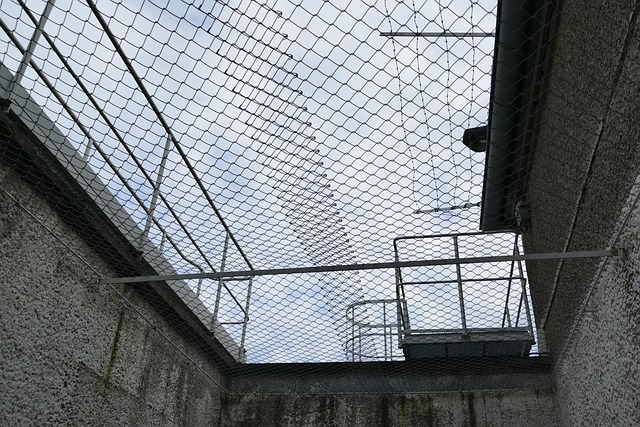Youth justice reform, focusing on issues like underage drinking, demands a fair and equitable approach that considers developmental differences and protects against harsh punishments. Blood Alcohol Level (BAL) testing, while crucial for accountability, requires reliable devices, standardization, and legal safeguards to respect youth rights. Over-policing and systemic biases lead to disproportionate impacts on marginalized youth, emphasizing the need for equal attention to both equality and due process. Innovative strategies like BAL testing, combined with community engagement through peer mentoring and education, can prevent delinquency, reduce recidivism, and foster safer communities.
Youth Justice Fair Treatment is a critical issue, demanding our attention in ensuring equitable outcomes for young individuals. This article explores various facets of this complex topic. We begin by examining the foundational concepts of youth justice and fair treatment, followed by a deep dive into blood alcohol level testing practices and their challenges. Subsequent sections delve into over-policing, legal considerations, innovative reform approaches, and community engagement as key drivers for positive change, with a specific focus on Blood Alcohol Level Testing.
- Understanding Youth Justice and Fair Treatment: A Necessary Framework
- Blood Alcohol Level Testing: Current Practices and Challenges
- The Impact on Young People: Over-Policing and Disproportionate Consequences
- Ensuring Equality and Due Process: Legal Considerations
- Innovative Approaches to Youth Justice Reform
- Community Engagement and Support Systems for Positive Change
Understanding Youth Justice and Fair Treatment: A Necessary Framework

Understanding Youth Justice and Fair Treatment is a foundational step in creating a more equitable society, especially when addressing issues like underage drinking and its consequences. In many jurisdictions, young individuals face distinct legal frameworks and penalties for offenses related to blood alcohol level testing. These differences can significantly impact their future prospects and overall well-being. It’s crucial to examine these practices through a lens of fairness and justice, ensuring that any disparities are challenged and addressed.
This framework involves considering the unique challenges faced by youth, such as developmental differences and limited decision-making capabilities. Fair treatment should also encompass protection from harsh or disproportionate punishments, promoting rehabilitation over mere punishment, and providing equal access to resources and legal representation. By adopting these principles, we can work towards a system that not only holds young offenders accountable but also supports their growth and reintegration into society.
Blood Alcohol Level Testing: Current Practices and Challenges

Blood Alcohol Level (BAL) testing is a crucial component in youth justice, particularly in cases involving underage drinking and driving. The current practice involves using breathalyzer devices to measure BAC levels, which are then used as evidence in court proceedings. This method is widely adopted due to its non-invasive nature and relative accuracy. However, challenges exist, primarily related to potential calibration issues with devices, the influence of external factors like temperature and certain medications on test results, and concerns about the voluntariness of youth participants.
These challenges underscore the need for ongoing device maintenance and standardization protocols to ensure reliable BAL testing. Furthermore, legal safeguards must be in place to protect youth rights and ensure their tests are administered fairly, with proper oversight and quality control measures. Accurate BAL data is essential for fair justice, but it’s crucial that current practices address these challenges to maintain integrity and reliability.
The Impact on Young People: Over-Policing and Disproportionate Consequences

The over-policing of youth and the subsequent disproportionate consequences have a profound impact on young people, especially those from marginalized communities. This issue often arises due to systemic biases and misunderstandings, leading to an increased presence of law enforcement in schools and public spaces where teenagers gather. As a result, many young individuals face stricter penalties for minor infractions, with practices like Blood Alcohol Level Testing (BALT) being employed more frequently in their cases.
The consequences of such measures can be devastating. Young people may end up with a criminal record, which can hinder their future prospects, including access to education and employment opportunities. This creates a cycle of disadvantage, making it harder for them to break free from poverty or any previous negative experiences that led them into the justice system in the first place.
Ensuring Equality and Due Process: Legal Considerations

Ensuring fairness in youth justice requires a keen focus on equality and due process, where legal considerations play a pivotal role. One critical aspect is the treatment of minors accused of offenses, emphasizing that their rights and protections are not diminished by their age. This includes ensuring that any evidence used against them, such as Blood Alcohol Level Testing (BALT) results in DUI cases, is obtained and interpreted with strict adherence to legal standards.
The application of BALT in youth cases necessitates a nuanced approach, considering the potential for developmental differences and the impact on their long-term well-being. Legal frameworks must address these concerns, ensuring that due process is not only followed but also tailored to the unique needs of young individuals, fostering a more equitable justice system.
Innovative Approaches to Youth Justice Reform

In the pursuit of fair treatment within youth justice systems, innovative approaches are reshaping the landscape of reform. One such groundbreaking method is the implementation of Blood Alcohol Level (BAL) Testing programs. By utilizing advanced technology to measure alcohol consumption in young offenders, this strategy offers a more precise and objective means of assessing responsibility and guiding sentencing. The data collected provides valuable insights into the impact of substance abuse on criminal behavior, enabling tailored interventions and rehabilitation plans.
Furthermore, these innovative practices extend beyond individual assessment. They incorporate community-based initiatives that foster early intervention and prevention strategies. For instance, educational programs focused on alcohol awareness and responsible consumption target at-risk youth, aiming to reduce repeat offenses related to alcohol-impaired decision-making. This holistic approach not only addresses the root causes of youth delinquency but also contributes to long-term positive outcomes for young individuals.
Community Engagement and Support Systems for Positive Change

Community engagement plays a pivotal role in ensuring fair treatment within youth justice systems. By actively involving local communities, we can foster an environment that supports and rehabs young individuals rather than simply punishing them. This includes initiatives like peer mentoring programs where at-risk youth can find positive role models within their own communities, addressing issues at the grassroots level before they escalate.
One effective tool in this regard is Blood Alcohol Level Testing (BALT) programs which, when coupled with community outreach, can serve as a deterrent and educational resource. By engaging parents, teachers, and community leaders in discussions around substance abuse and its legal consequences, we create a network of support that encourages responsible behavior. This holistic approach not only promotes positive change but also ensures that youth are equipped with the knowledge and resources to make better choices, reducing repeat offenses and fostering a safer, more supportive community environment.
Youth justice systems worldwide are undergoing a transformative journey towards fairer treatment, acknowledging the unique needs of young individuals. By addressing issues like over-policing and flawed testing methods, such as blood alcohol level (BAL) assessments, we can create more equitable outcomes. The path forward involves embracing innovative legal reforms, community engagement, and support systems that foster positive change. Balancing strict laws with empathy and understanding is crucial to ensuring young people receive fair treatment and have a brighter future. Implementing these strategies will help break the cycle of disparities and promote a more just society for all.






